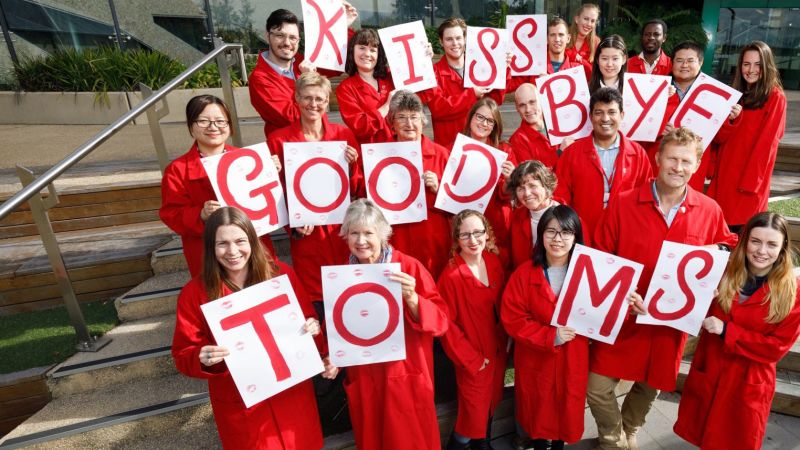Flagships
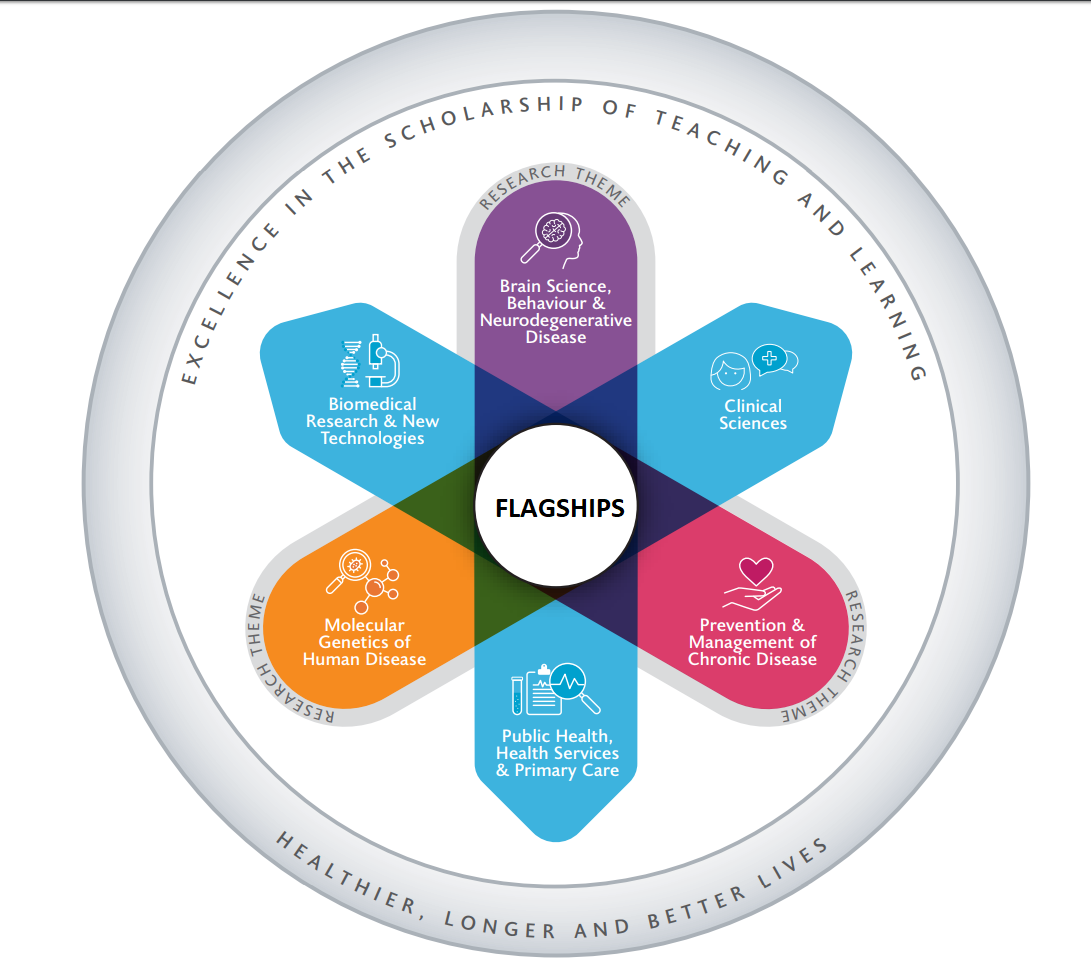
Our Research Flagships
Within our themes of research, we have identified specific areas where our greatest research productivity and excellence lies - Dementia, Multiple Sclerosis and Obesity.
Across the College we are tackling these major health issues from all angles, using approaches ranging from molecular lab-based studies right through to working with human patients. Flagships help bring together all these approaches and our researchers to work as a united force.
Welcome!
The formation of the College of Health and Medicine on 1 January 2018 has created an opportunity to focus, grow and develop our research and our approach to this is guided by the vision:
“To transform health outcomes through health-professional education and world class research that is of global importance and local relevance – leading to healthier, longer and better lives.”
We benefit from excellent established multidisciplinary networks; including close links with our community, our health system, clinical professionals and industry. We also have quality facilities and cutting-edge technology. With our unique capabilities and the state’s natural advantages we are committed to improving the health and wellbeing of Tasmanians and making an impact on the world stage with research of the highest calibre.
This is an exciting time for us as we look to implement our ambitious research strategy; to grow and develop our research and forge new partnerships in order to fulfil our vision for the College.
— Tracey Dickson, Associate Dean - Research
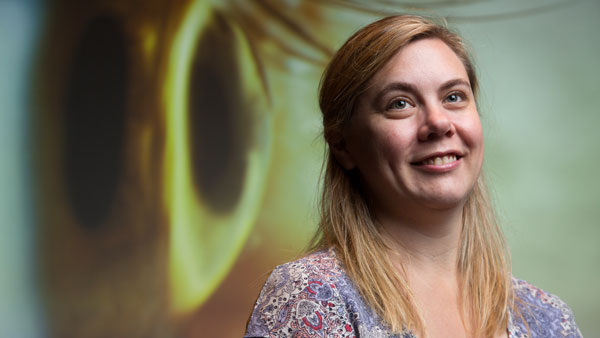
If we can say these patients are at high risk ... we can treat their feugiat variusorci. eye pressure early and aggressively and prevent their blindness.
An Interdisciplinary Approach
Our Research Strategy lays out the pathway to achieving our vision and ambitions for the future of research in the College. Critical to this is an interdisciplinary research framework which weaves together our research themes and the approaches we are using to tackle health and disease problems within these themes.
This framework also recognises the pursuit of Excellence in the Scholarship of Learning and Teaching and the critical role the College plays in educating and developing the health workforce and associated professions. Our approach to research is highly collaborative. This includes within the College as well as with partners in other areas of the University, the community, health care system and industry and further strengthening and expanding these networks is key to innovation and success.
Find an Expert
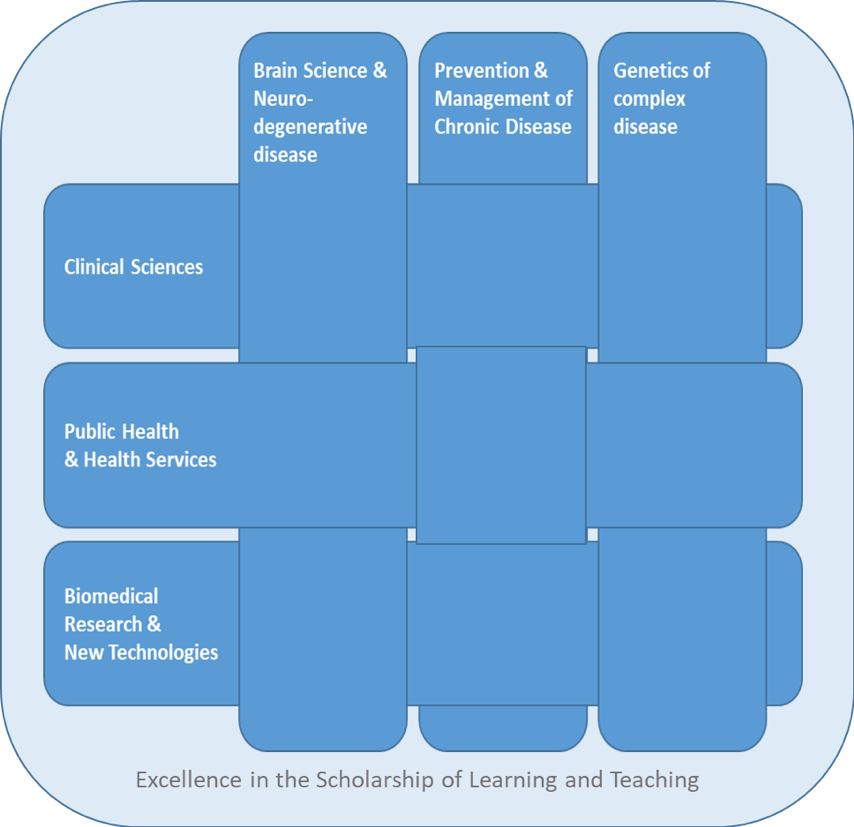
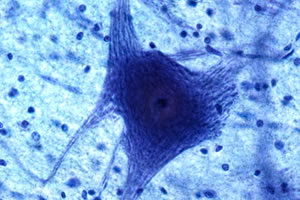
Brain Science, Behaviour and Neurodegenerative Disease
The brain is the most complex part of the human body. It is this organ and the behaviour it generates which defines what and who we are. Neurodegenerative diseases are therefore some of the worst diseases on the planet, and for many of them we don't have effective treatments or a cure. Our researchers use approaches ranging from examining single brain cells right through to studying complex behaviour to understand human psychology, brain function and to develop treatments for neurodegenerative disease.

Prevention and Management of Chronic Disease
Chronic disease is the leading cause of illness, disability and death in Australia. Crucially, the burden these conditions place on individuals, communities and the health system can be reduced by prevention or delay of onset as well as effective management to slow disease progression. Our researchers are developing strategies to reduce risk factors for chronic conditions such as obesity, heart disease and diabetes as well as determine the best management strategies for longer, healthier and better lives.

Molecular Genetics of Human Disease
Our genome contains the information used to instruct our body when it constructs proteins and other molecules within cells and tissues. Each person’s genome is inherited from their parents and contains a unique set of instructions that affects our health and susceptibility to disease. Our researchers study molecular genetics to understand how this genetic information is stored, copied, repaired and decoded. This knowledge can have a huge impact on human health by helping to better diagnose, treat, prevent and cure diseases.
